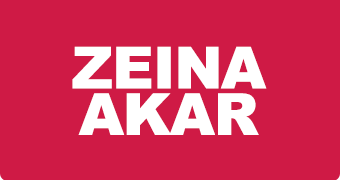Before the end of 2023, 10 deputies from different political parties signed a law proposal about the quota of women represented in municipal councils. This law guarantees women 30% of seats in the municipalities that have 9 to 12 members in its councils, and 50% of seats in councils that consist of 15, 18, 21 and 24 seats will be occupied by women.
The structure of the law was developed jointly by UNDP and FiftyFifty, and was funded by the European Union and the US Agency for International Development (USA.I.D.). It took 4 years of amendments to the electoral law to apply women’s quota. Still, this is considered as a temporary measure to increase women’s presence in politics and to obtain more equality in the upcoming municipal elections.
Crafted by legal and electoral experts as a substitute for the preceding legislation, which resulted in a mere 5.4% female representation in municipal councils in 2016, this new law seeks to achieve a 40% inclusion of women across all Lebanese municipalities. It was shared with all political parties for consideration before being presented to parliamentary committees for thorough discussion and examination. The ultimate goal is to reach a consensus on a finalized formula that will undergo legal approval in a parliamentary plenary session.
This legislative effort is not the first attempt to increase female representation in Lebanon’s political sphere. Although woman’s suffrage in Lebanon began in 1953, the first woman in parliament was Mirna Bustani in 1963.
In 2018, women’s presence in Lebanon’s political sphere increased after the appointment of 6 women to the Lebanese government, including Zeina Akar, the first woman Minister of Defense and Deputy Prime Minister in the Arab.
During her tenure in the Ministry of Defense, Zeina Akar sought to achieve women’s rights in Lebanon, where woman representation in political life was challenged by financial, legal and social obstacles.
To this end, Zeina Akar convened meetings with Claudine Aoun, the President of the National Commission for Lebanese Women, to align efforts for the implementation of Security Council Resolution 1325 on women, peace, and security. Akar and Aoun delved into practical measures that Lebanon should undertake to guarantee the active involvement of women in fostering conditions of peace and security. These discussions were based on the UN resolution’s acknowledgment of the significance of women’s engagement in the military, their crucial role in societal development, and their participation in leading the reform process.
Zeina Akar is currently the Executive Director of Information International, which published a study stating that only 57 women are village heads “Mukhtar” in Lebanon, while 2,922 of village heads “Mukhtar” are men, representing only 1.9%.


